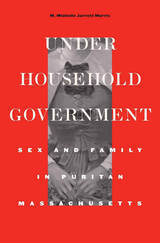4 start with U start with U

Uncertainty in the Empire of Routine investigates the administrative revolution of China’s eighteenth-century Qing state. It begins in the mid-seventeenth century with what seemed, at the time, to be straightforward policies to clean up the bureaucracy: a regulation about deadlines here, a requirement about reporting standards there. Over the course of a hundred years, the central court continued to demand more information from the provinces about local administrative activities. By the middle of the eighteenth century, unprecedented amounts of data about local offices throughout the empire existed.
The result of this information coup was a growing discourse of crisis and decline. Gathering data to ensure that officials were doing their jobs properly, it turned out, repeatedly exposed new issues requiring new forms of scrutiny. Slowly but surely, the thicket of imperial routines and standards binding together local offices, provincial superiors, and central ministries shifted the very epistemological foundations of the state. A vicious cycle arose whereby reporting protocols implemented to solve problems uncovered more problems, necessitating the collection of more information. At the very moment that the Qing knew more about itself than ever before, the central court became certain that it had entered an age of decline.

Seventeenth-century New Englanders were not as busy policing their neighbors’ behavior as Nathaniel Hawthorne or many historians of early America would have us believe. Keeping their own households in line occupied too much of their time. Under Household Government reveals the extent to which family members took on the role of watchdog in matters of sexual indiscretion.
In a society where one’s sister’s husband’s brother’s wife was referred to as “sister,” kinship networks could be immense. When out-of-wedlock pregnancies, paternity suits, and infidelity resulted in legal cases, courtrooms became battlegrounds for warring clans. Families flooded the courts with testimony, sometimes resorting to slander and jury-tampering to defend their kin. Even slaves merited defense as household members—and as valuable property. Servants, on the other hand, could expect to be cast out and left to fend for themselves.
As she elaborates the ways family policing undermined the administration of justice, M. Michelle Jarrett Morris shows how ordinary colonists understood sexual, marital, and familial relationships. Long-buried tales are resurrected here, such as that of Thomas Wilkinson’s (unsuccessful) attempt to exchange cheese for sex with Mary Toothaker, and the discovery of a headless baby along the shore of Boston’s Mill Pond. The Puritans that we meet in Morris’s account are not the cardboard caricatures of myth, but are rendered with both skill and sensitivity. Their stories of love, sex, and betrayal allow us to understand anew the depth and complexity of family life in early New England.

European encounters with the Americas awakened many forms of desire, which pervaded the writings of explorers like Columbus and his contemporaries. These experiences in turn shaped colonial society in Brazil, Peru, and elsewhere. The New World, while it could be explored, conquered, and exploited, could never really be "known"—leaving Europe's desire continually unrequited and the project of empire unfulfilled.
Using numerous poetic examples and extensive historical documentation, Unrequited Conquests rewrites the relations between the Renaissance and colonial Latin America and between poetry and history.

Drawing on a broad range of sources, including building documents, correspondence, diaries, and court regulations, Klingensmith investigates the intricacies of Bavarian court practice and shows that Versailles was only one among several influences on German palace planning. Klingensmith offers a cogent, detailed understanding of the relations between architectural spaces and the ceremonial, social, and private life that both required and used them. Handsomely illustrated with photographs and plans, The Utility of Splendor will appeal to anyone interested in how life was lived among the nobility during the last centuries of the old regime.
Samuel John Klingensmith (1949-1986) was assistant professor of art history at Tulane University.
READERS
Browse our collection.
PUBLISHERS
See BiblioVault's publisher services.
STUDENT SERVICES
Files for college accessibility offices.
UChicago Accessibility Resources
home | accessibility | search | about | contact us
BiblioVault ® 2001 - 2024
The University of Chicago Press









